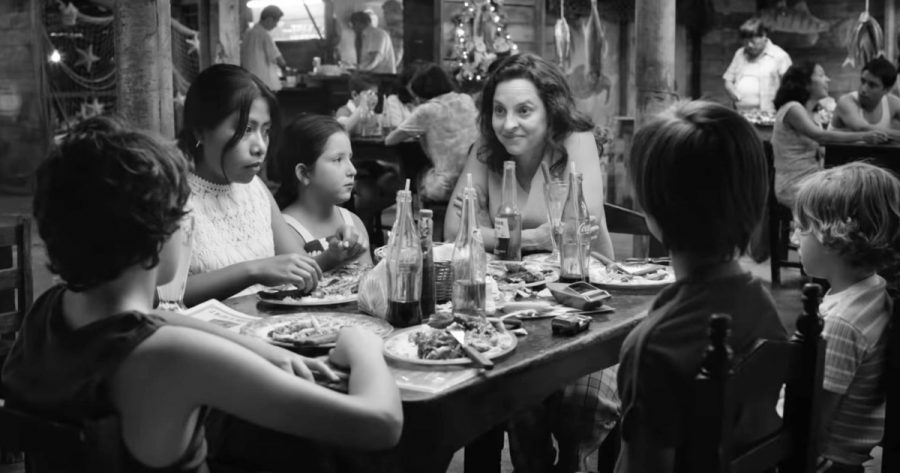Netflix’s Hidden Gem: ‘Roma’
January 14, 2019
Alfonso Cuarón is likely an unfamiliar name to many people, but he has directed, written, or produced many successful movies from writing and directing “Gravity” and “Children of Men” and producing hits such as “Pan’s Labyrinth.”
Cuarón continues this winning streak with the premiere of his new film, “Roma,” which landed on Netflix recently. This film is a reflection of Cuarón’s own personal experiences from growing up in Mexico in the eighties.
The film follows Cleo, the maid to a middle-class family in Mexico. Throughout the 2-hour run time, Cleo’s relationship with the family is established as she cares for the large assortment of children. The movie also highlights the personal lives of the mother of the family and Cleo, as the relationship between the two is strained.
The movie features Spanish dialogue, meaning you’ll either have to brush up on your Español or read subtitles. If neither of those seems like a viable option for you, then this film may not be your cup of tea.
Some distaste may be associated with how “simple” “Roma” is, in that it is truly a “slice of life” type film. Cleo and Sofia (the mother) have defined arcs and progress throughout the duration of the film (as the experience trauma and heartache), but there isn’t really a clear objective set in the beginning. The film has a clear beginning, middle, and end, and it even contains branching subplots and some semblance of an overarching story.
Mostly, however, the movie just as it is described, a small glimpse into the life of a maid working for a family in 1970’s Mexico. If you aren’t fun of slow, methodic progressions and a heavily character driven plot, it would be best to steer clear of this film.
For those who decide to stick through with the film, the most eye-catching aspect will initially be how the film is in black and white, which is an interesting artist choice from Cuarón. But even amongst the grays of black and white film, Cuarón is able to display a vibrant, colorful world, ripe with stunning shots and scenery.
I could ramble on about the gorgeous cinematography in the film, but another strong point of this film is the performances. Yalitza Aparicio as Cleo is fantastic, delivering a nuanced reserved performance which is simultaneously brimming with emotion. She does an excellent job at breathing life into her character.
Marina de Tavira delivers another stellar performance as Sofia, gifting the audience with a character who becomes progressively unstable as the film goes on. A crucial part of the efficacy of this film was inevitably the performances from the various child actors, and I am happy to say that they do their job well. The acting never felt forced or artificial, which could very well be due to the language barrier of the film. Although I am still compelled to review their performances positively.
Roma feels intensely personal, sacrificing having larger than life movie characters for having a grounded and riveting experience that is gut-wrenching until the last second. Alfonso presents scenes which can tug at the audiences heart strings.
The movie isn’t for the faint of heart, because even though it is relatively tame in the beginning, later in the movie there is a prolonged intense scene of violence, and there is a strikingly realistic scene which would be a spoiler if explicitly stated. It also features some male frontal nudity, so if that sort of thing makes you uncomfortable, just skip the scenes or avoid the movie.
Overall “Roma” is a beautiful experience for any of those who are accustomed to a slow pace, language barrier, and a different type of presentation.









